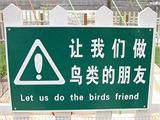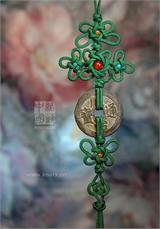[What are the standards for classical Chinese beauty?]
Since ancient times, there has been a fine saying in China that "a graceful and virtuous lady is the good pursuit of a gentleman". The love for beauty exists in everyone. But who can define these two words, "virtuous lady" and "beautiful lady"?
There has not been a definite standard for classical Chinese beauties. The ancients believed that beauty includes appearance, figure, art, etc. Below are the four great beauties of ancient China:
The Four Beauties refer to Diaochan, Xi Shi, Wang Zhaojun, and Yang Guifei from ancient China. The Four Beauties enjoy the reputation of having the beauty that makes the moon hide its face in shame and flowers blush with embarrassment. "Hiding the moon, making flowers blush, sinking fish, and falling geese" are historical allusions composed of wonderful stories. "Hiding the moon" tells the story of Diaochan worshipping the moon. "Making flowers blush" tells the story of Yang Guifei viewing flowers. "Sinking fish" tells the story of Xi Shi washing silk. "Falling geese" is the story of Zhaojun going to the Xiongnu. Later, people used "sinking fish, falling geese, hiding the moon, and making flowers blush" to describe the beauty of women.
[Diaochan]
Diaochan, from Bingzhou, Shanxi (today's Xinzhou), was a songstress of Grand Tutor Wang Yun at the end of the Eastern Han Dynasty. She was extraordinarily beautiful, with a face that could topple a nation. Seeing that the Eastern Han Dynasty was being manipulated by the treacherous minister Dong Zhuo, she prayed to heaven under the moon, wishing to share her master's worries. Wang Yun, seeing that Dong Zhuo would usurp the Eastern Han Dynasty, devised the Linked Stratagem. Wang Yun secretly promised Diaochan to Lu Bu, but openly offered her to Dong Zhuo. Lu Bu was a heroic young man, while Dong Zhuo was cunning and deceitful. To win over Lu Bu, Dong Zhuo adopted him as his godson. Both were lustful men. Thereafter, Diaochan played between these two men, sending flirtatious glances to Lu Bu and charming Dong Zhuo. She stirred up their passions.
After Dong Zhuo took Diaochan into his house as his concubine, Lu Bu harbored resentment. One day, taking advantage of Dong Zhuo's absence in court, Lu Bu entered Dong Zhuo's house to visit Diaochan and invited her to meet at Fengyi Pavilion. Diaochan, seeing Lu Bu, falsely cried about being forcibly taken by Dong Zhuo. Lu Bu became enraged. At this moment, Dong Zhuo returned home and saw them, angrily seizing Lu Bu's halberd and directly attacking Lu Bu, who fled. From then on, the two began to distrust each other. Wang Yun then persuaded Lu Bu to eliminate Dong Zhuo. There is a Peking Opera called "Fengyi Pavilion" which narrates this story.
"Hiding the moon" refers to Diaochan. When Diaochan worshipped the moon in the back garden, a gentle breeze suddenly blew, and a floating cloud covered the bright moon. Just at that moment, Wang Yun happened to see it. In order to promote how beautiful his daughter was, Wang Yun told everyone he met that his daughter was so beautiful that she could rival the moon, which couldn't compare and quickly hid behind the clouds. Therefore, Diaochan was also called "hiding the moon" by the people.
[Yang Guifei]
(719-756) A native of Yongle, Puzhou during the Tang Dynasty (now Huayin County, Shaanxi Province). She was well-versed in music and dance. Initially, she was the wife of Prince Shou, the eighteenth son of Emperor Xuanzong of Tang. After Emperor Xuanzong saw the beauty of Yang Yuhuan, he wanted to take her into the palace, so he made her a Taoist nun with the name Taizhen. In the fourth year of Tianbao (745), she entered the palace, gained the favor of Emperor Xuanzong, and was bestowed the title of Imperial Consort (Guifei). Her father and brothers all gained power because of her. Whenever the Imperial Consort rode a horse, the high eunuch Gao Lishi personally held the whip for her. She had seven hundred embroidery workers, and many officials competed to present her with rare treasures. Zhang Jiuzhang, the governor of Lingnan, and Wang Yi, the governor of Guangling, were both promoted because of the fineness of their gifts. As a result, all officials vied to emulate them. Yang Guifei loved lychees from Lingnan, so people went to great lengths to transport fresh lychees to Chang'an.
Later, during the Anshi Rebellion, Emperor Xuanzong fled from Chang'an. On the way to Mawei Slope, the six armies refused to move forward, claiming that Yang Guozhong (the cousin of the Imperial Consort) colluded with the Hu people, leading to An Lushan's rebellion. Emperor Xuanzong killed Yang Guozhong to calm the army. Still, the six armies refused to move forward, stating that Yang Guozhong was the cousin of the Imperial Consort, and if the cousin was guilty, the cousin sister should not be spared either. Thus, the Imperial Consort was strangled to death at the roadside temple. The Anshi Rebellion had nothing to do with Yang Guifei; she became a scapegoat for Emperor Xuanzong.
"Shame of Flowers" refers to Yang Guifei. During the Kaiyuan period of the Tang Dynasty, Emperor Minghuang indulged in luxury and sent out people to search for beauties all over the country. At that time, Hongnong Yang Yuanyan from Shou Di County had a beautiful daughter named Yang Yuhuan, who was selected to enter the palace. After entering the palace, Yang Yuhuan missed her hometown. One day, she went to the garden to admire the flowers and relax. Seeing the blooming peonies and roses... she sighed deeply, thinking of herself being locked in the palace, wasting her youth. She said to the blooming flowers: "Flowers, flowers! You bloom every year, but when will I have my day?" She burst into tears and touched the flowers. Immediately, the petals contracted, and the green leaves curled down. Little did she know, she touched a sensitive plant. At this moment, a palace maid saw it. The palace maid spread the word everywhere, saying that Yang Yuhuan was competing with flowers for beauty, and the flowers all blushed and lowered their heads in shame.
[Wang Zhaojun]
During the reign of Emperor Xuan of the Han Dynasty, the aristocracy of the Xiongnu fought for power, gradually declining. Five Chanyus were divided, constantly attacking each other. Among them, Chanyu Huhanye was defeated by his brother Zhizhi Chanyu (pronounced Zhi). Determined to make peace with the Han Dynasty, Huhanye personally visited Emperor Xuan of Han.
Huhanye was the first Chanyu to visit Central China. Emperor Xuan personally went to the outskirts of Chang'an to welcome him and held a grand banquet for him. Huhanye Chanyu stayed in Chang'an for more than a month. He asked Emperor Xuan to help him return home. Emperor Xuan agreed and sent two generals with ten thousand cavalry to escort him to the southern desert. At this time, the Xiongnu were short of food, and the Han Dynasty also sent 34,000 hu of grain.
Huhanye Chanyu was very grateful and was determined to maintain friendly relations with the Han Dynasty. When countries in the Western Regions heard that the Xiongnu and the Han Dynasty had reconciled, they all rushed to establish ties with the Han Dynasty. After Emperor Xuan died, his son Liu Shi ascended the throne, known as Emperor Yuan of Han. The Zhizhi Chanyu of the Xiongnu invaded the countries in the Western Regions and killed envoys sent by the Han Dynasty. The Han Dynasty sent troops to Kangju and killed Zhizhi Chanyu. After Zhizhi Chanyu's death, Huhanye Chanyu's position stabilized. In 33 BC, Huhanye Chanyu once again visited Chang'an and requested a marriage alliance. Emperor Yuan agreed. For the marriage alliance between the Han Dynasty and the Xiongnu, a princess or a daughter of the imperial clan must be chosen. This time, Emperor Yuan decided to choose a palace maid for him. He instructed someone to pass the message in the harem: "Whoever is willing to go to the Xiongnu, the emperor will treat her as a princess." The palace maids in the harem were all selected from the common people. Once they entered the palace, it was like birds being caged, all hoping to be released one day. But hearing that they had to leave their homeland and go to the Xiongnu, they were unwilling. There was a palace maid named Wang Qiang (pronounced Qiáng), styled Zhaojun, who was beautiful and wise. She volunteered to marry into the Xiongnu. Emperor Yuan chose an auspicious day for Huhanye Chanyu and Wang Zhaojun to get married in Chang'an. When Huhanye Chanyu and Wang Zhaojun thanked Emperor Yuan, Emperor Yuan saw Zhaojun's beauty and grace, making the Han Palace shine.
Different dynasties have different standards, and the Four Beauties represent the standards of beauty for each dynasty.



